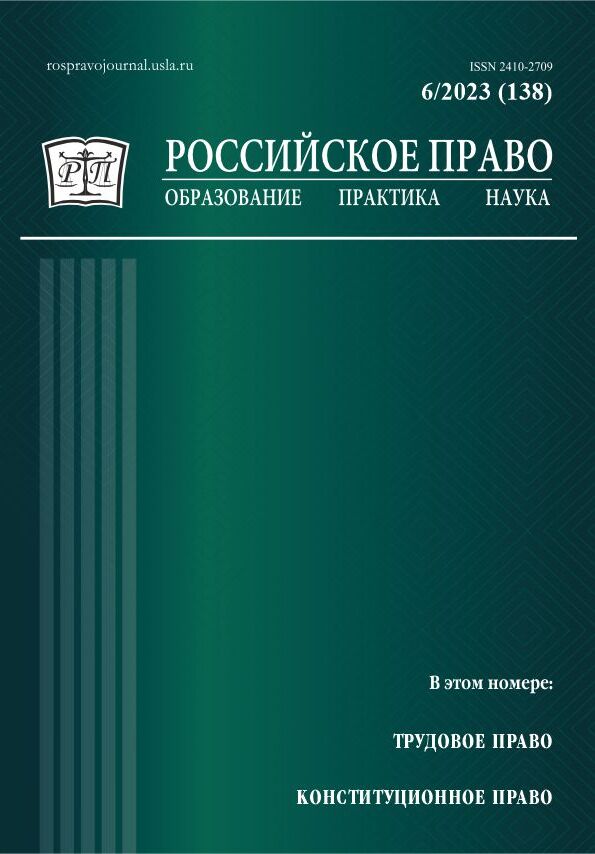Disproportionate Rights of Participants in Limited Liability Partnerships in the Legislation of the Russian Federation and the Republic of Kazakhstan
Abstract
In the first years after the collapse of the Soviet state, when the first (general) parts of the Civil Codes of the independent states were adopted in 1994, in the law of the Republic of Kazakhstan and the Russian Federation the institute of legal entity was built under the influence of the RomanoGermanic legal family and the regulation of the participant rights was mainly similar. Further development of the corporate law of the mentioned states occurs on its own trajectory under the influence of the pre-revolutionary studies, experience of the Anglo-Saxon legal family, and the states’ own experience.
The author compares the corporate legislation of the Russian Federation and the Republic of Kazakhstan with regard to the realization of some participant rights. These include the distribution of net profit (net income) between participants, possession of the number of votes at general meetings of participants, pre-emptive purchase of participation interest without application of the proportionality principle. The comparative study shows the challenges and difficulties in the application of some norms of the current legislation of these states. The author concludes that it is possible for participants in commercial corporations (aside from joint-stock companies) to establish «other scopes» of authority. Dispositive provisions should be incorporated not only in specialized legislation but also in the civil code, as is the case in the Russian Federation. The information about disproportionate rights should also be disclosed and cannot be kept as a commercial secret.
Downloads
Published
Issue
Section
License
Copyright (c) 2024 RUSSIAN LAW: EDUCATION, PRACTICE, RESEARCHES

This work is licensed under a Creative Commons Attribution-NonCommercial 4.0 International License.







 This work is licensed under a
This work is licensed under a 